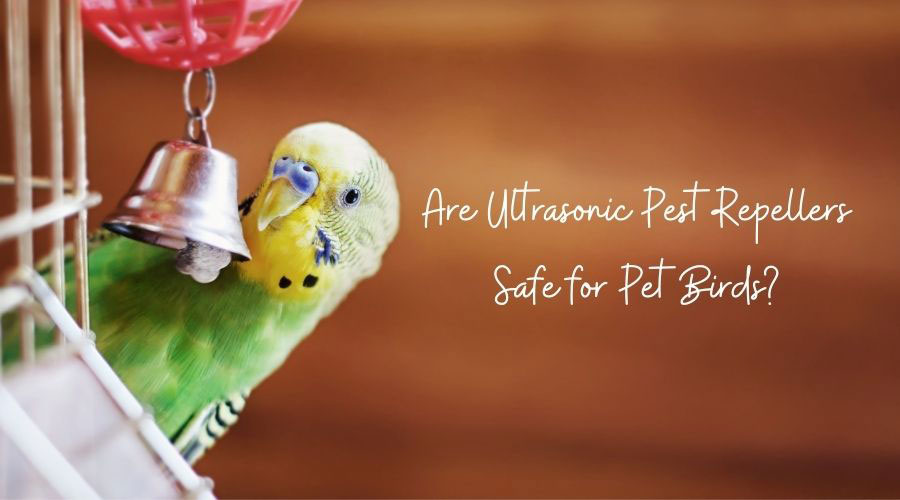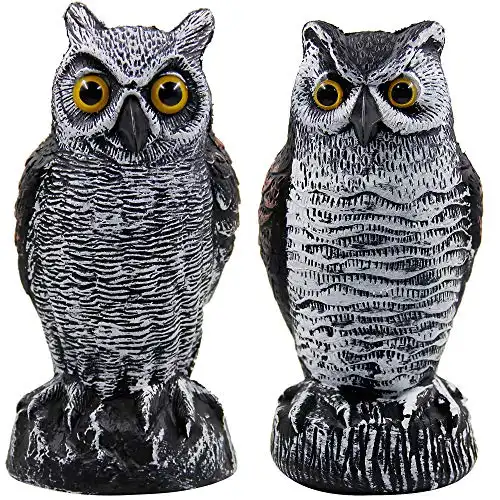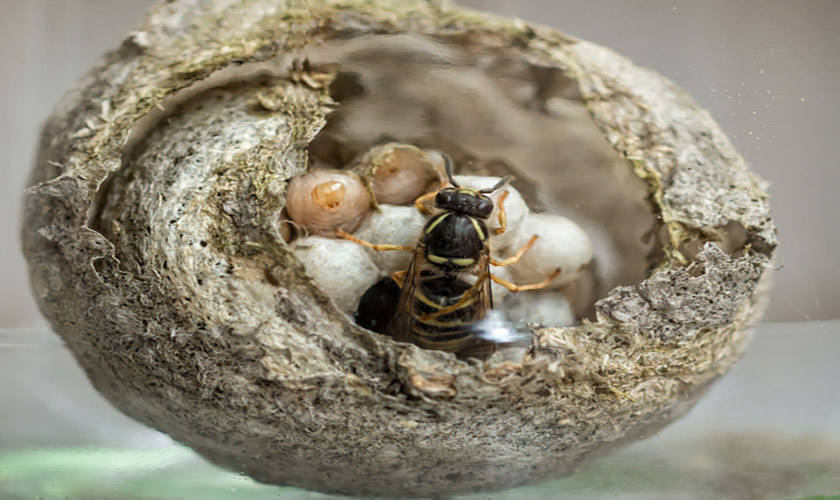
Pests are one of those things you have to deal with most of the time. It’s not a glorious job, but someone has to do it. None of the repellents in the market that promise to rid your home of pests is more controversial than ultrasonic pest repellers. However, are they safe for pet birds?
Ultrasonic pest repellers get tested many times. Scientists have checked whether these devices are good for deterring birds from invading your premises.
As far as science and personal experiences go, ultrasonic pest repellers are safe for pet birds. Depending on what you want from ultrasonic pest repellers, it’s good and bad.
Get FREE quotes from licensed pest control technicians in your area today. Whether you need spraying for ants, roaches, spiders, ticks, mosquitos, or bed bugs, We Can Help! All technicians are screened, licensed, and insured.
Let’s demystify ultrasonic pest repellers. We’ll look at whether they are effective and if they are safe for your pet birds. We interact with sounds different from how animals interact with sound.
Some animals are sensitive to sound and can pick up the slightest sound signals. Animal sensitivity to sound informs the development of ultrasonic devices for pest management. However, there might be some issues with the entire premise.
Are Birds Affected by Ultrasonic?
Birds are not affected by ultrasonic sounds. One of the critical things to remember about birds is that they hear just as well as we do. That means, if a sound is barely audible to you, a bird won’t listen to it. At least most of them anyway.
Birds pick up low-frequency sounds, between 1-5 kHz, with total hearing between .5 and 8 kHz. Ultrasonic devices do not operate in that range.
On the contrary, you’d be better positioned to affect birds with sounds if you used loud deterrent bird sounds. Unfortunately, it’s a method you can’t apply indoors.
According to USDA Wildlife Services National Wildlife Research Center research, no bird species has shown sensitivity to ultrasonic frequencies (>20 kHz).

Do Ultrasonic Repellers Bother Wild Birds?
Ultrasonic repellers are supposed to bother birds. However, they are ineffective against birds. Ultrasonic sound, the disruptive factor in ultrasonic repellers, is above birds’ hearing ability. However, it might be a double whammy against ALL birds if they worked.
Birds have a more sensitive hearing system than humans. Their eardrums are more vulnerable to sound even if they share the same hearing capabilities as humans.
The human ear has curves and turns as you go deeper into the year. However, birds’ ear anatomy is almost linear. That means the sound waves they receive are still as intense when they get to the eardrums.
Repellers would affect all species of birds within their radius of effectiveness (about 800 and 1,200 square feet).
Do Ultrasonic Pest Repellers Bother Pet Birds
If you place ultrasonic pest repellers in your home and notice they do nothing to ward off other birds, they are also ineffective against your pet birds.
Pet birds such as parakeets have super sensitive sound systems. And while there is no scientific proof ultrasonic pest repellers don’t bother birds, it would be safer to keep an eye out for any signs of sound-related stress.
Pet birds won’t necessarily react to the sound if they can pick it up. They respond to changes in the environment. Most birds prefer an environment with relative peace, which also means auditory calmness.
Any change in the environment will unsettle them, causing the following modifications:
- There might be a change in feeding patterns.
- Watch out for any changes or problems with their feathers.
- They might become extra aggressive.
- Change in vocalization may be a sign the sound bothers them.
Do Ultrasonic Pest Repellents Harm Birds?
No, ultrasonic pest repellents don’t harm birds. At least not directly. Birds hear the sound signals we hear. So any signs we exhibit from the constant bombardment of ultrasonic sounds, you best believe birds can also have them.
Sustained ultrasonic sounds can harm birds, especially at higher volumes. In humans, such problems come as:
- Tinnitus
- Reduced coordination
- Problems with concentration
- Mental agitation
Birds might not get the same problems. However, they might be louder or look disoriented.
Are Ultrasonic Pest Repellers Safe for Parrots?
Yes, ultrasonic pest repellers are safe for parrots. Parrots are one of the most sensitive pets in a home. They do not react well to noise changes.
Luckily, ultrasonic pest repellers are not loud enough for parrots. Parrots are sensitive to sounds between 200 Hz to 8.5 kHz. Since parrots use sounds for vital activities for their survival, they are susceptible to voice changes.
However, parrots have a unique sense of hearing. If you play any sound at an extremely high frequency, they will not detect it. Yet, if you play the sound they can hear, it will affect them. It will only take a slight change in pitch for the same sound to become ineffective.
Bird-safe Ways to Repel Pests
1. Repellents with Lights
Birds and other pests are scared of sudden light flashes. Some ultrasonic pest repellers come with strobe lights. Alternatively, use DIY solutions such as aluminum-covered streamers in the garden to keep bird pests away.
2. Glue Boards
Glue boards are safe and mess-free to keep away pests such as roaches and rats. They don’t use any poison, and you can discard the boards with the pests still intact. From there, it becomes nature’s problem – or a predator’s lunch.
3. Predator Bird Decoys
Bird decoys keep outdoor pests from infesting your home. Mechanical owls are popular predator bird decoys. However, pests adapt to the sight of the lures. Therefore, you must keep changing locations or decoys to keep the ‘threat’ fresh.
Are Ultrasonic Pest Repellers Safe For Pets?
Yes, ultrasonic pest repellers are safe for pets. Typically, you’d use ultrasonic pest repellers indoors to keep pests such as roaches and small rodents away.
Insects pick up sounds beyond the human hearing capacity. It’s why ultrasonic pest repellents are considered a modern pest control method.
Pets are also sensitive to sound. They might react differently to any sound that we can’t pick up. Ultrasonic devices emit sounds above 20 kHz.
Dogs, for example, can hear frequencies up to 45 kHz, while cats pick frequencies up to 64 kHz. That means pets in the radius that ultrasonic pest repellers cover can pick up the specific frequency.
Fortunately, there’s not enough verifiable evidence to suggest ultrasonic sounds affect common house pets. Still, you can’t and shouldn’t take chances on electronic devices that can affect your pet.
It would help if you looked out for any reactions to the ultrasonic devices from your pets. However, let us check out some studies that people partook in.
- Study #1: SIU School of Medicine studied animal noise effects. Dr. Jeremy G. Turner noted that noise altered animals’ hearts, sleep, and endocrine cycles. There was a possibility these sounds exposed animals to the risk of seizures.
- Study #2: Another study in 2015 observed the effects of ultrasonic sounds, particularly on cats. The study concluded cats could develop feline audiogenic reflex seizures from exposure to ultrasonic sounds.

Possible Effects of Ultrasonic Sounds on Cats
Cats will show different signs if the ultrasonic waves become too intense. They might not necessarily be reacting to the sound.
Instead, they respond to the prolonged change in frequency. Note that cats are not too happy about changes to their environment. Therefore, anything as sudden as sound frequency will disorient them.
Their reactions manifest in various ways. Here are some down below:
- Check whether your cat has reduced litter box time. They may start littering outside designated areas because of disorientation and stress.
- Unusual scratching could signify that your cat is irritated by the constant sharp sound. Scratching is normal in cats. However, it could be a sign of discomfort when they are not area marking or padding an area.
- They might initially want to remove the ultrasonic pest repellent or keep away from it. It could be bad if your cat changes its usual resting places and strays too far from the house. In such a case, check the distance. If your cat moves beyond the signals’ reach, the device bothers them.
The good news is that none of the studies pointed specifically to ultrasonic pest repellers as the culprits.
Possible Effects of Ultrasonic Sounds on Rabbits
While ultrasonic pest repellents are mainly ineffective against mice and rats, they might harm smaller pets. Rabbits, hamsters, and guinea pigs might pick up on the waves. They affect the rodent-sized pets’ hearing and could potentially unsettle them.
Technically, we don’t consider rabbits as rodents. However, they pick up frequencies between rabbits and hear 360-42,000 Hz. That means they can hear ultrasonic sounds.
If they can listen to them, they likely will react to them. If you have a pet rabbit, it is best to keep it away from ultrasonic pest repellent.
Rabbits do not do well with stress, and prolonged exposure to irritating sounds is one quick way to stress your pet rabbit.
Check your rabbit for these signs of stress.
- Your pet rabbit is jumpier. They can’t settle in one spot, and their movement is erratic.
- They might charge at you aggressively or become vocal if you get close.
- If they experience the sound too long, stress might make them shed hair.
- Bunnies’ ears tend to droop when sudden changes stress them.
- They are hyper-alert and they are restless. It almost looks like they are looking for the source of the disturbance. Also, keep an eye out for lethargy. Some rabbits react to stress by sleeping too much.
- They are likely stressed if you notice decreased feeding or uninterest in food.
- Their breath or heartbeat seems higher or faster than usual.
Other smaller pets, such as pet gerbils, are vulnerable to sound changes. They get stressed out by any sound changes in a room. They might react by extra movement, becoming abnormally stationary, increased anxiety, and becoming more vocal.

Possible Effects of Ultrasonic Sounds on Other Animals
As a pet owner, you have your pet’s best interests at heart. Therefore, you likely won’t take any chances when and if you try ultrasonic devices for pest management in and around your home. These are some common signs that might indicate the effect of ultrasound devices.
- You might notice your pets — especially dogs — whining more than usual. A trained pet might try to lead you to the noise source. Remove the ultrasonic repellents from your home if you pick up on your pets’ directional cues after installing them.
- If your pet becomes fixed in one spot and you notice teeth chattering, it could signify that they are uncomfortable or anxious. The sound might be irritating their ears.
- Increased jitteriness and pacing could be a sign the ultrasound waves bother them, but they can’t pick up the exact location of the sound.
- Pets get jumpy when they are upset. You’ll notice there are no external stimuli that have them excited to be that jumpy. Be watchful to tell the difference between happy excitement and agitation.
- They might back away whenever they come close to the outer limits of the ultrasound waves. Notice if your pet clings to you immediately after you bring the ultrasonic device to your home.
- Some pets might also be extra vocal during this time. Cats might be more alert since they pick up on a higher frequency.
- Check for changed or excessive self-cleaning or grooming. Most small animals might clean themselves excessively for comfort.
Conclusion
Ultrasonic pest controllers have the right idea. However, there hasn’t been any concrete evidence that points to their effectiveness since they came out. Whether short or long-term, ultrasonic pest controllers will not keep pests away.
If ultrasonic pest controllers worked as they should and there were to keep birds away, they would also pose a risk to your pet birds.
Use other bird-safe methods to keep away pests from your home. If you insist on trying ultrasonic pest controllers, test their efficiency before committing to one.
Get FREE quotes from licensed pest control technicians in your area today. Whether you need spraying for ants, roaches, spiders, ticks, mosquitos, or bed bugs, We Can Help! All technicians are screened, licensed, and insured.








